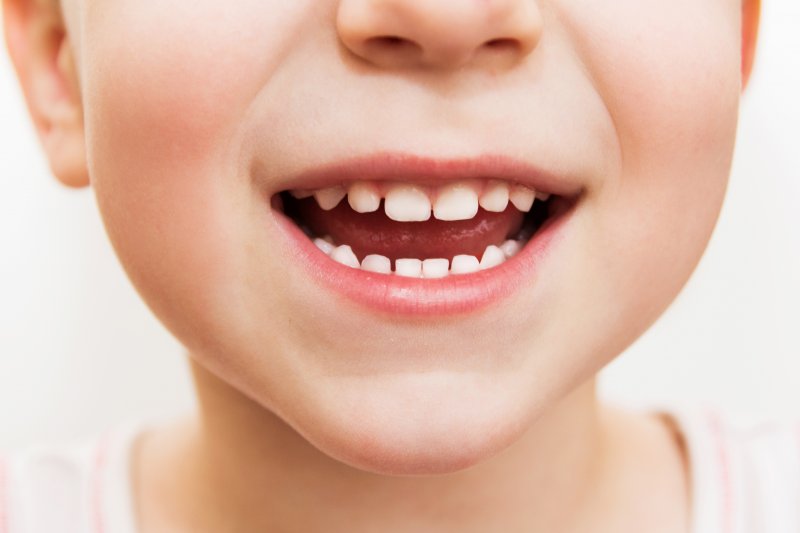5 Things Every Parent Should Know About Their Child’s Baby Teeth
March 7, 2021

Whether you have one or three, every parent knows that each child is unique. Not only will they hit milestones at different ages, but their baby teeth will also erupt at different times, too. Even if you think you have all the information you need to prepare for these primary pearly whites to push through, you’re likely missing a few vital details that can help you better navigate this time in your child’s life. Read on to learn 5 things you should know about these early teeth and what you can expect as they continue to grow and develop.
The First Few Teeth Will Erupt Between 6-12 Months
Typically, most children will see their first baby tooth push through around 6 months of age; however, this process can be delayed, and your child may not have their first teeth until closer to 12 months. No matter the timeline, it is usually the first 1-2 teeth on the lower arch that show up first, soon followed by the upper front two teeth. By the time your child reaches the age of 3, they should have all of their baby teeth.
Fluoride Should Be Incorporated Once Your Baby is 6 Months Old
Even if you’re still waiting for their first tooth to erupt, you can begin to incorporate fluoridated water into your baby’s diet starting around 6 months of age. Once the first tooth pops up, you’ll want to begin brushing with only a smear of fluoride toothpaste (the size of a piece of rice) to thoroughly clean and protect their tooth enamel from the potential for decay.
Your Child’s First Dental Visit Should Be Scheduled When the First Tooth Erupts
The American Association of Pediatric Dentistry and the American Academy of Pediatrics both agree that a child’s first dental appointment should be scheduled either by their first birthday or once their first tooth erupts. This will allow the pediatric dentist to establish a positive relationship with your baby as well as ensure there are no problems developing early on.
Using the Right Teething Techniques Can Benefit Both You and Your Baby
Whether it is a solid, cold teether or using a clean washcloth to gently rub their gums, using the right methods and techniques to soothe your teething baby is important. Oral tablets that contain benzocaine can be toxic to infants, and amber necklaces and teething gels can pose a potential choking hazard. Choosing the right solutions to help your baby achieve relief from the pain can make a big difference for both you and your child.
Baby Teeth Set the Stage for Permanent Teeth
Although it is true that baby teeth will eventually fall out, they should remain in place as long as possible, especially since they set the stage for a child’s permanent teeth. Should your little one have decayed teeth that fall out too early, it can cause adult teeth to erupt crooked and misaligned. It can also mean a greater risk for tooth decay as their permanent teeth move into place.
Your child’s baby teeth are precious. Making sure you are not only caring for them yourself but also encouraging your child to do the same will lead to a healthier, more beautiful smile as they grow older.
About the Author
Dr. Melissa Rozas is a pediatric dentist in Coppell who completed her Doctor of Dental Surgery degree at the University of Texas School of Dentistry in Houston. After finishing her pediatric dental residency at UT/Herman Hospital, she became board certified by the American Board of Pediatric Dentistry. Because baby teeth are important to the future of children’s smiles, Dr. Rozas will go over important details to help you and your child prepare for the eruption as well as the loss of a baby tooth and what to do when permanent teeth arrive. If you would like additional help to navigate this stage of your child’s life, contact us at (972) 393-9779.











